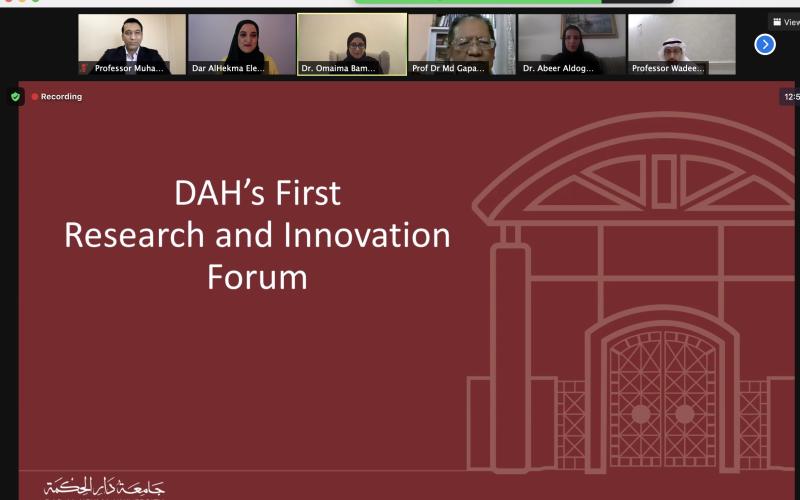Prof. Khurram Presents a Cybersecurity Keynote at Research and Innovation Forum
Prof. Khurram Presents a Cybersecurity Keynote at Research and Innovation Forum
Dar-Al-Hekma University (Saudi Arabia) organized a ‘Forum on Research & Innovation’ on 8 March 2021. The forum aimed at bringing together scientists and researchers from prestigious institutions to share their research and innovation in the age of digital transformation. In the opening speech, Dr. Abeer Aldoghaither, the president of Dar-Al-Hekma University, welcomed speakers and audience to the forum and underscored the significance of scientific research and innovation in the era of digital transformation. She outlined and discussed the ambitious vision of Dar-Al-Hekma University to contribute to the journey of Saudi Arabia in becoming a knowledge and innovation-based economy. In addition, she also stressed the value of new frontiers of research and development in the areas of emerging technologies for the growth and prosperity of the Kingdom of Saudi Arabia.
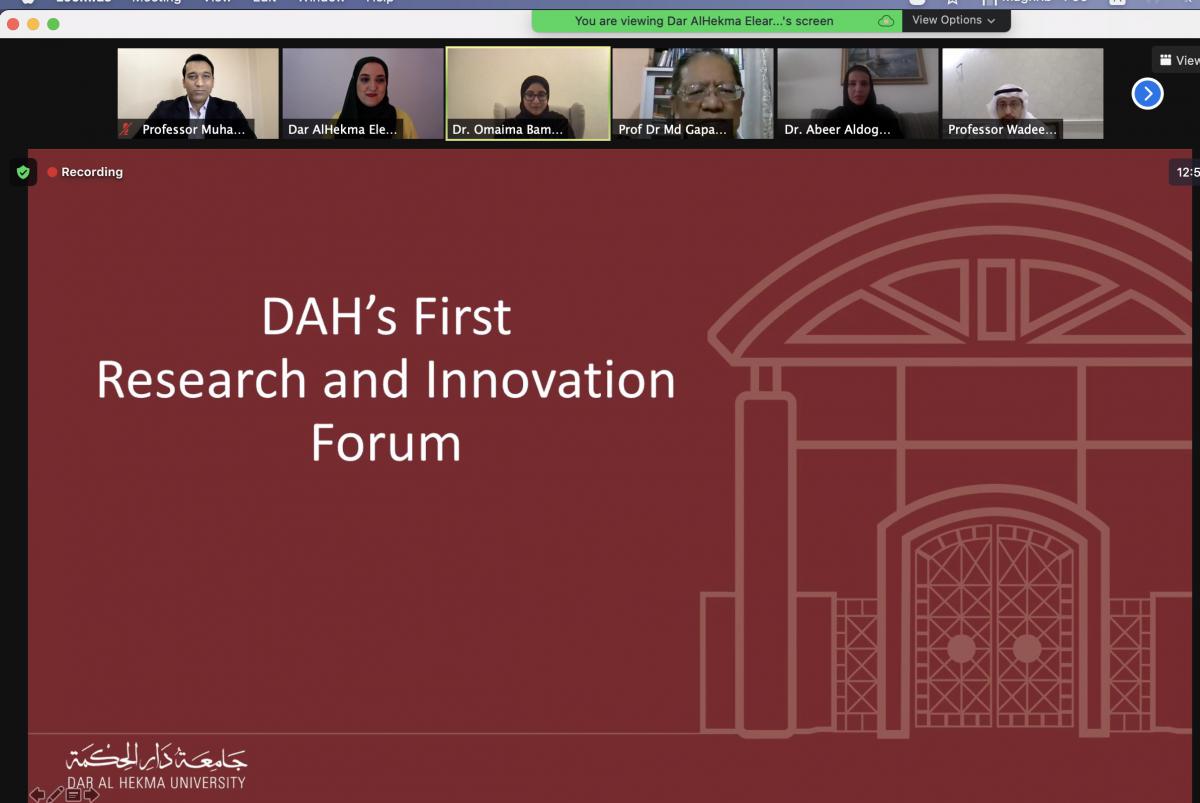
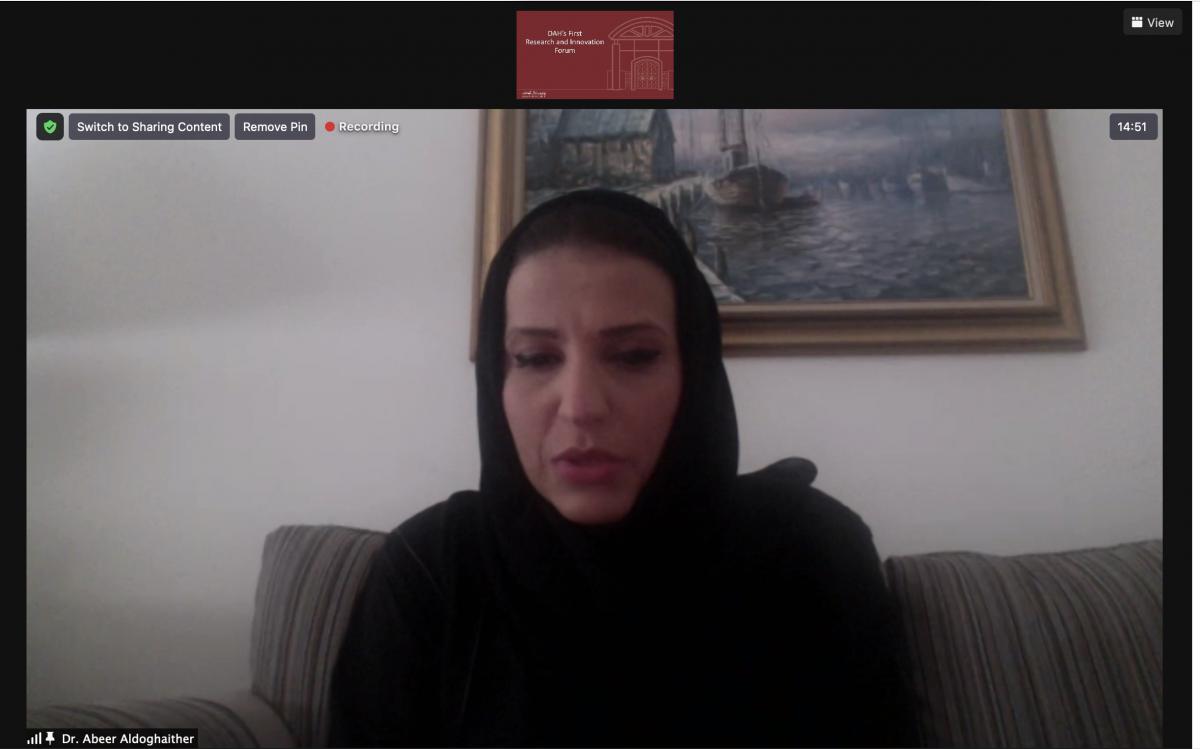
After the opening session, Prof. Omaimah Bamasaq, the Director of Center of Excellence in Smart Environment Research at King Abdulaziz University, presided over the keynote session. A panel of distinguished speakers were invited at the forum, including Prof. Muhammad Khurram Khan (Center of Excellence in Information Assurance at King Saud University), Prof. Wadee Alhalabi (Faculty of Computing and Information Technology at King Abdulaziz University), and Prof. Dato Md Gapar Md. Johar (Senior Vice President Research, Innovation, Technology and System at Management and Science University, Malaysia).
In the opening keynote, Prof. Muhammad Khurram Khan delivered a keynote on “Cybersecurity Ecosystem in the Digital Economy: Challenges and Recommendations”. In his speech, he said, “The problem with any digital economy is that it is too fragile as far as its cybersecurity is concerned. A severe and tenacious cyber attack can cripple down the whole economy if hackers attack its critical national infrastructure and shut down power, telecom networks and supply chain. This is becoming a rising threat to digital economies and getting a great popularity in the global media and news”. He further discussed the cyber risks faced by Small and Medium Enterprises (SMEs), which account for the majority of businesses worldwide and are important contributors in job creation and economic development. He said, “SMEs are becoming key target of cyber crimes due to their limited resources, smaller budgets and fewer skills to defend against cyber attacks, which leave them at the mercy of critical cybersecurity vulnerabilities, that are oftentimes exploited by cyber criminals and cost a lot”.
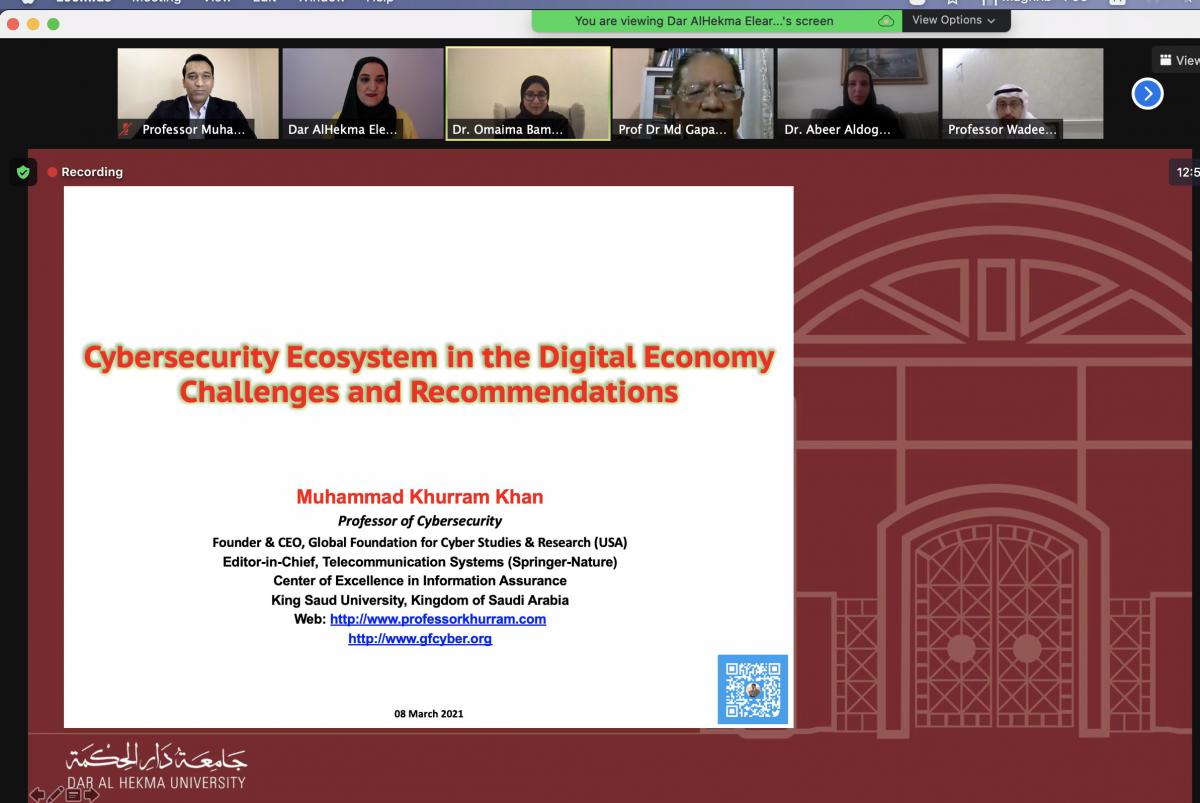
Prof. Khurram further explained, “We need to work in a triple helix-model of innovation where universities, industries and public sector organizations should work together to address the cybersecurity challenges and problems. It is imperative to launch outstanding cybersecurity academic and hands-on training programs to prepare skilled cyber workforce, and establish capacity and capability building programs at national level. These academic and scientific initiatives should be strengthened by establishing world-class R&D initiatives to support scientists, researchers, engineers and professionals to spur innovation and entrepreneurship that could underpin the cybersecurity industry locally as well as globally. We could only defeat the cybercriminals when all stakeholders work together in collaboration from academia, industry, public sector, business organizations, civil society, and law enforcement agencies”.
In the next keynote, Prof. Wadee Alhalabi presented a speech on “Artificial Intelligence Impact on Innovation” and discussed that the use of AI is drastically on the rise in organizations, governments, industries, and education sectors. He underscored the importance of AI and said “AI is already ubiquitous in our digital lives and its backbone is data which is exponentially growing through social media, medical records, digital platforms, and extraordinary use of Internet and technologies. AI will drive the personalized medicine revolution, change the way we travel in autonomous vehicles, build secure and resilient systems, and transform the ways we entertain ourselves”. Prof. Alhalabi also discussed some of his recently accomplished projects in AI and machine learning with their practical applications in real-life scenarios.
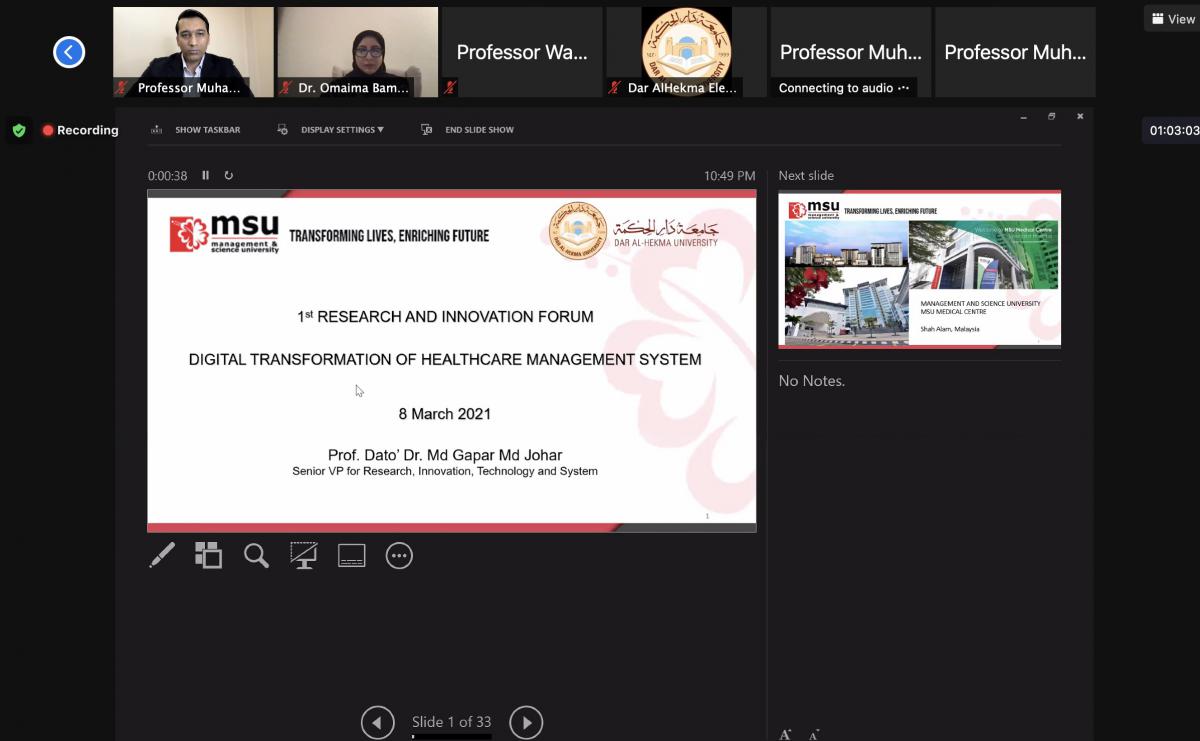
In the final keynote entitled, “Digital Transformation of Healthcare Management System”, Prof. Dato Md Gapar Md. Johar discussed the importance of digital disruption that has become a phenomenon of the 21st century. He said, “AI-enabled IoT and medical devices, blockchain-driven medical health records, and big medical data are just a few concrete examples of digital transformation in healthcare, which are reshaping how we interact with medical service providers, how our data is shared with healthcare practitioners, and how decisions are made about our medical treatment and health outcomes”. He further explained that the digitalization of healthcare means enabling medical specialists for better treatment and helping patients with enhanced care management by employing latest technologies that have lower chances of human error and reduced medical costs.
The forum was followed by a panel discussion session moderated by Prof. Omaimah Bamasaq and supported by Ms. Malakeh Itani from Dar-Al-Hekma University. In this session, panelists discussed the importance of research and innovation by harnessing the triple helix-model where universities, industries and public sector organizations should work together to address the most pressing societal challenges. The panelists also discussed recent trends in research and innovation from an engineering, cybersecurity and artificial intelligence perspective. The event was attended by a large number of online attendees from Saudi Arabia and around the World.

